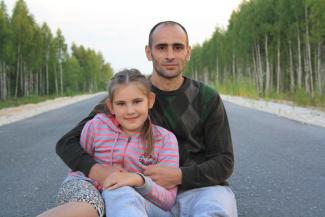What is a trust and what can it be used for?
Abbie Kingdon 29-08-2022
Trusts are a useful and adaptable means by which people can plan, protect, and bestow their wealth. A trust is a legal relationship created (either in the lifetime of the settlor, or on his/her death) by a settlor when assets are placed under the control of a trustee for the benefit of a beneficiary.
There are four different types of trust:
- Express trusts;
- Resulting trusts;
- Constructive trusts; and
- Implied trusts
Implied trusts are a rarity nowadays, and resulting and constructive trusts arise by operation of law instead of by the settlor’s intention, so this outline focuses on express trusts, which are created intentionally, usually in the form of a written deed or declaration of trust.
Essentially, a trust enables one person, ‘the trustee’, to legally own and control property while vesting all the ultimate, beneficial entitlement to that property in another person, ‘the beneficiary.’
In terms of application, this means families can organise the distribution of property and wealth between family members.
Trusts enable people writing their wills to appoint executors who take the settlor’s property as trustees of it, until they can carry out the obligations imposed on them under the will. Effectively, the settlor is appointing another person to step into their shoes, and to deal with their property according to their wishes after their death.
The settlor may choose to create a trust when making their will, or as part of a commercial transaction, or as part of a structure to limit their liability to tax.
To create a valid express trust, there are three ‘certainties’ required. Firstly, there is ‘certainty of intention’: the settlor must demonstrate a clear intention to create a trust, as opposed to creating something else. Secondly, there is ‘certainty of subject matter’; the trust property must be sufficiently segregated from other property so that the trust fund is certain and clearly identified. Thirdly, there is ‘certainty of objects’: the beneficiaries of the trust must also be clearly identified.
Establishing an express trust involves the creation of a relationship between settlor, trustee, and beneficiary. Whether a valid trust has been created hinges on whether a clear intention to create a trust has been expressed by the settlor. There are certain pitfalls: ‘precatory’ language, for example, where the settlor expresses a ‘wish’, a ‘request’, or a ‘hope’, may be found lacking in sufficient intention to create a trust. The best way to make intentions unambiguous is to use clear, imperative language.
Sometimes, a settlor might wish to establish a charitable trust. Where this is the case, there must be a clear intention to establish a charitable trust; the trust must be established for a purpose the law regards as charitable, and its purposes must both be exclusively charitable, and benefit a sufficient section of the public.
Fiduciary duties are owed by trustees. Their position imposes a duty of exclusive loyalty and good faith towards the beneficiaries.
A discretionary trust is an arrangement that gives trustees flexibility and control over how best to use the trust assets for the benefit of the beneficiaries. When a discretionary trust is set up, the settlor identifies a class of beneficiaries, such as children and/or grandchildren, who can receive capital and/or income from the trust at the discretion of the Trustees. No one beneficiary has an absolute entitlement to either income or capital. Discretionary trusts are often used to put assets aside for children and/or grandchildren for a future financial need, or as a protective measure for a family member who may be unable to manage their own finances. A beneficiary of a discretionary trust can continue to claim welfare benefits, for example, personal independence payments.
In short, a trust is a useful and flexible device for apportioning property. They can be complex to set up and administer, which is why it is important to take legal advice at an early stage if you want to set up a trust, or if you need to help to decide whether a trust will be suitable for you and your family.
Contact the team of trust experts at Samuels for further information and advice.
Article credit: Lalla Merlin

